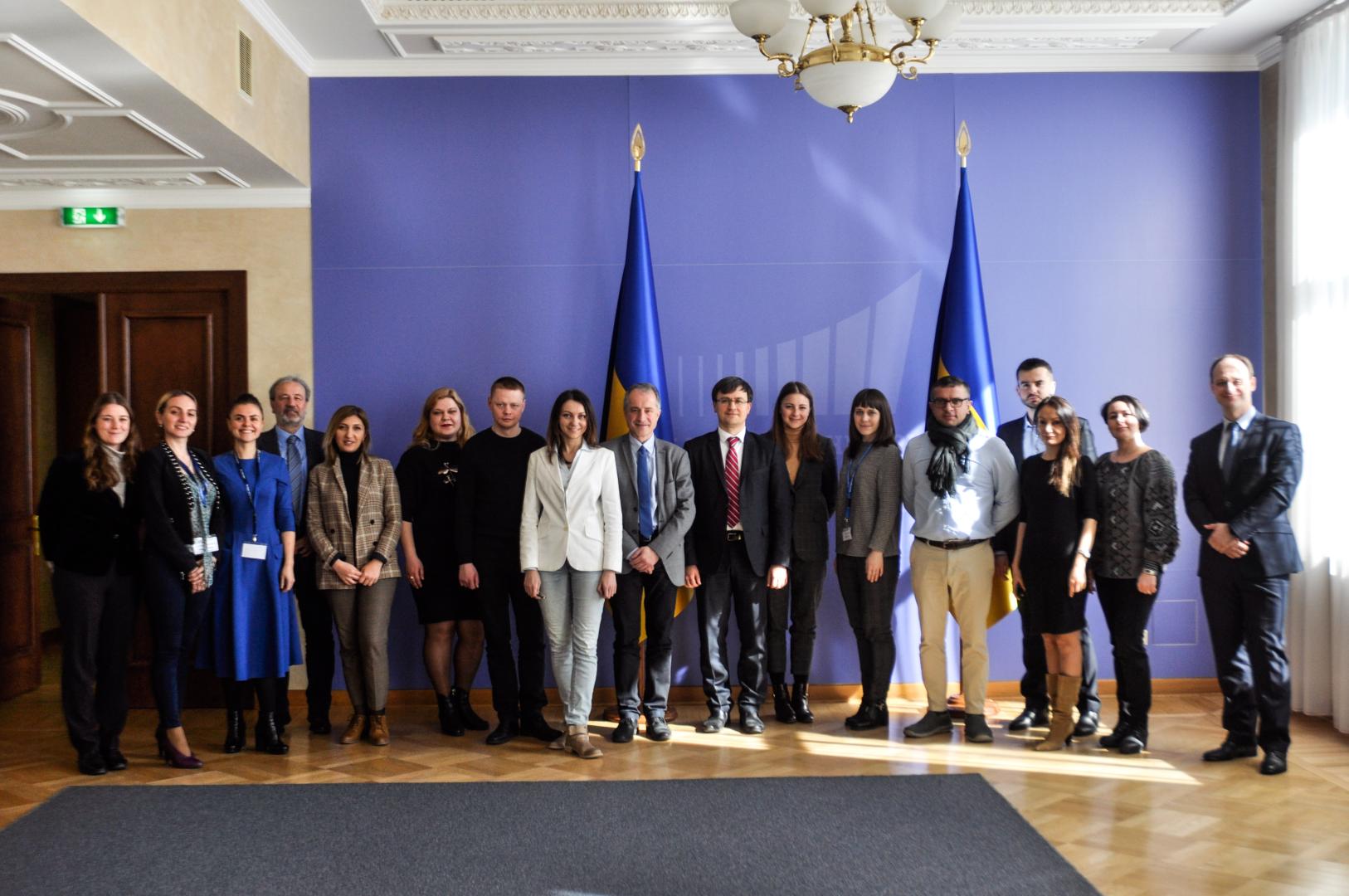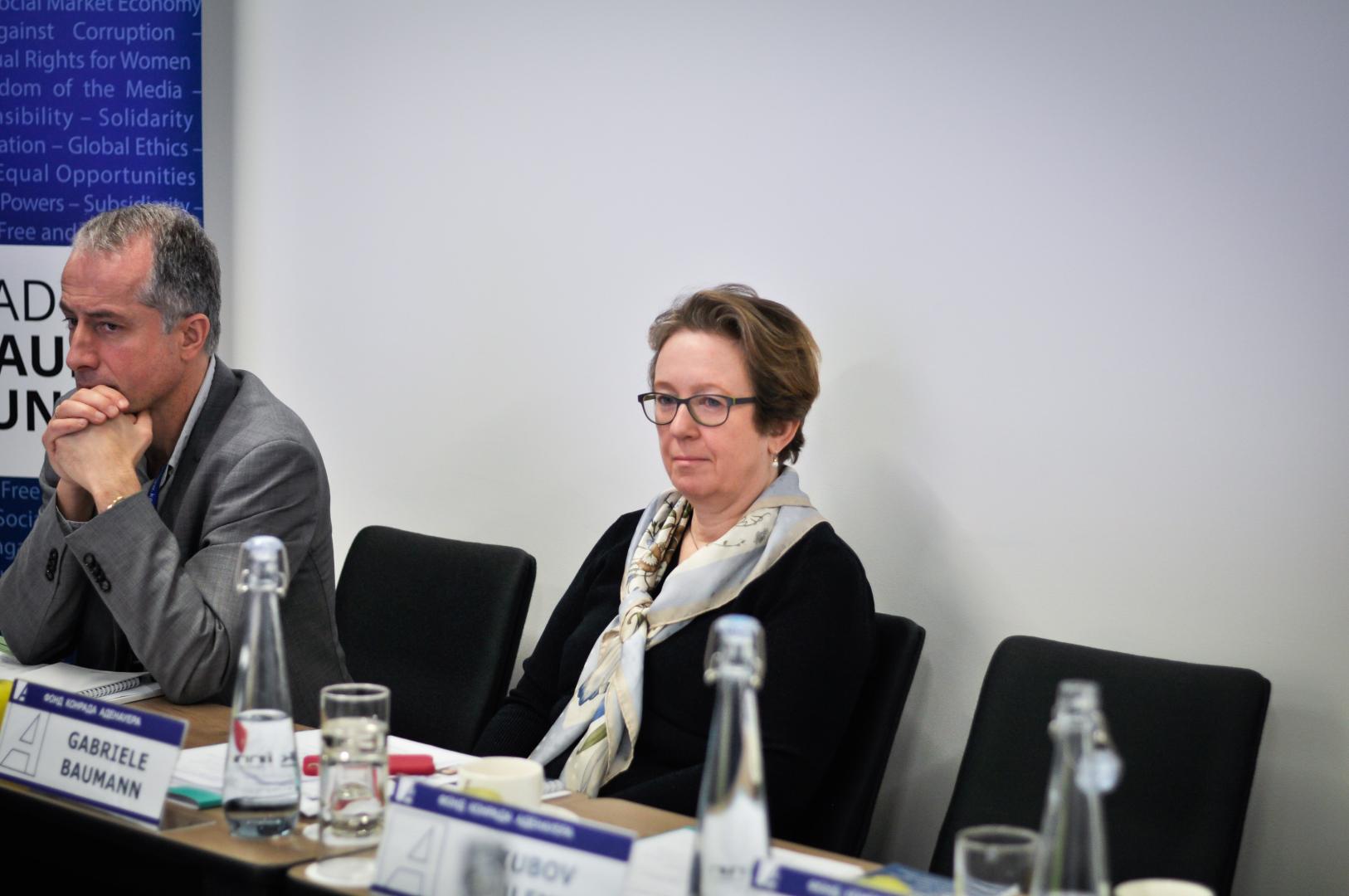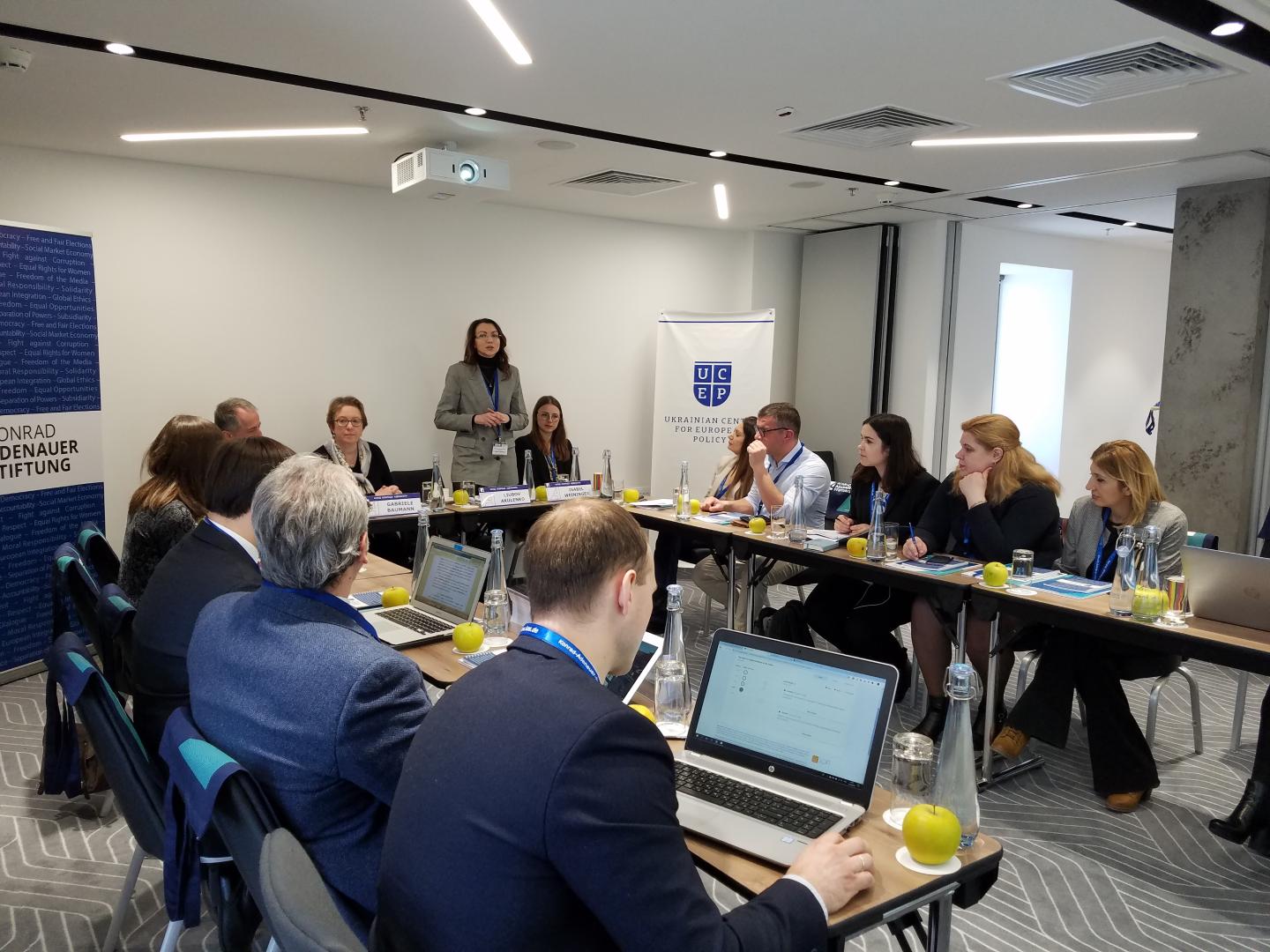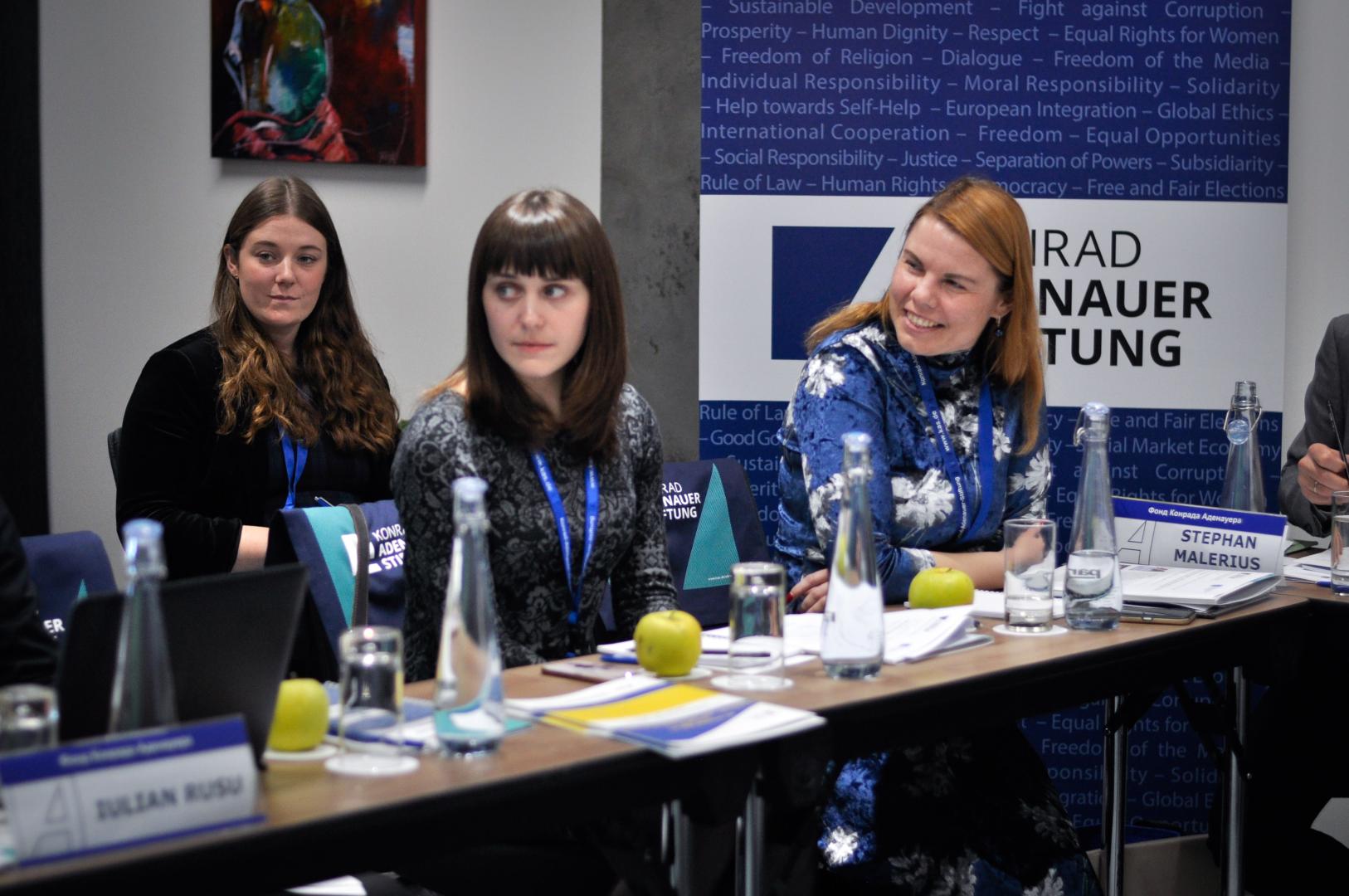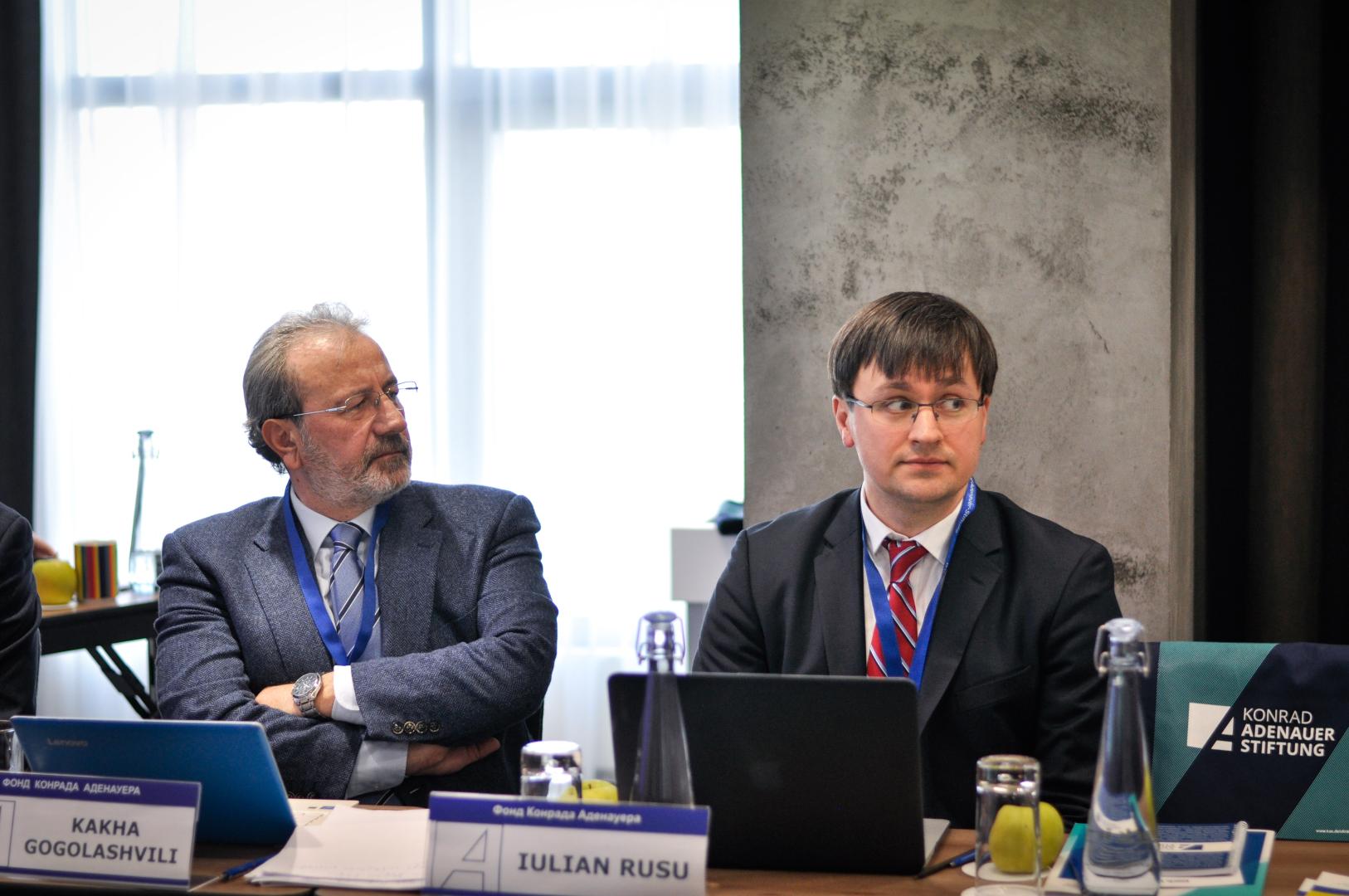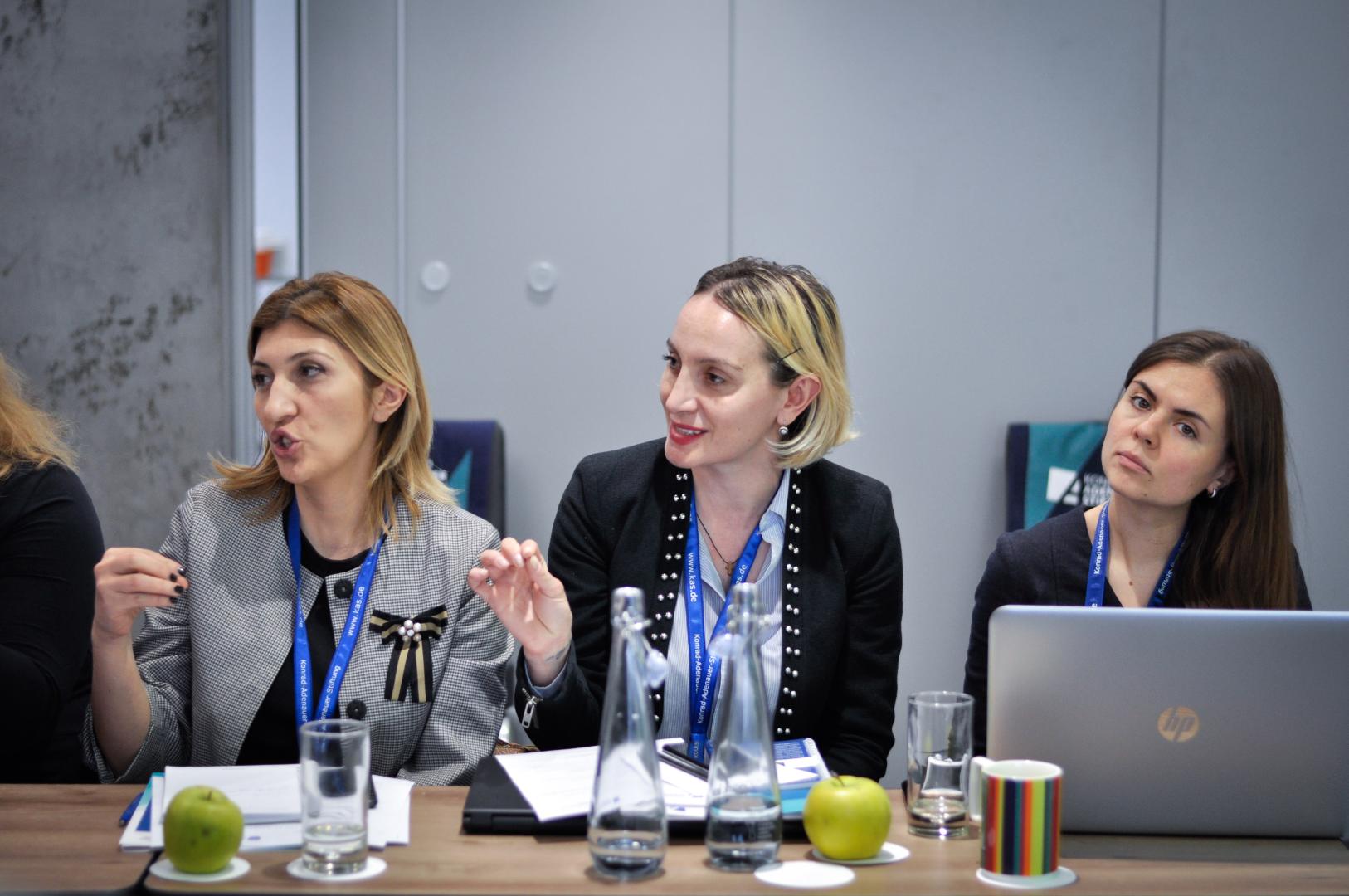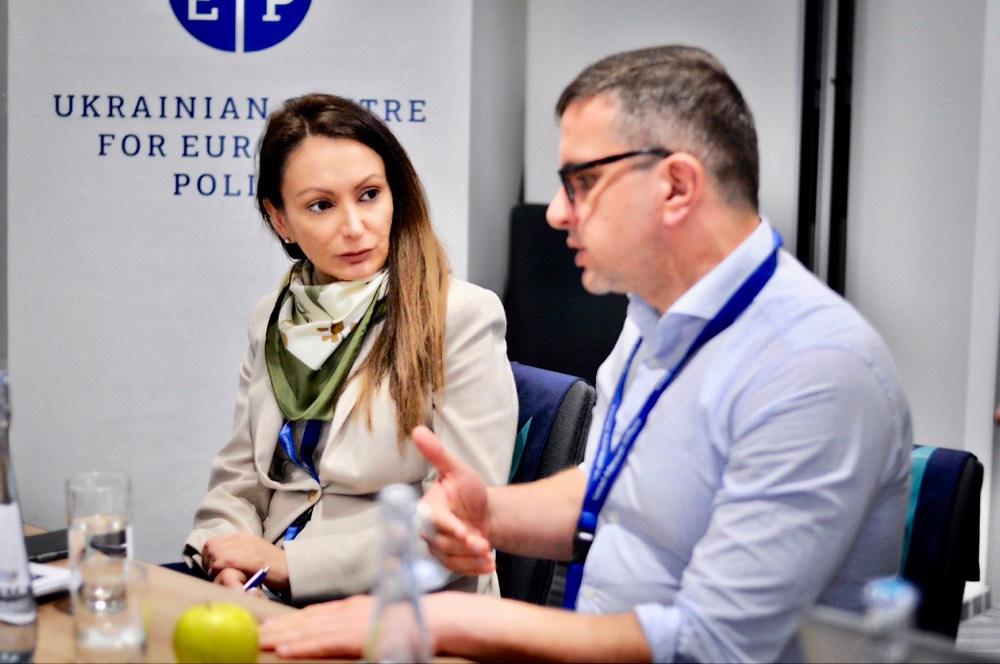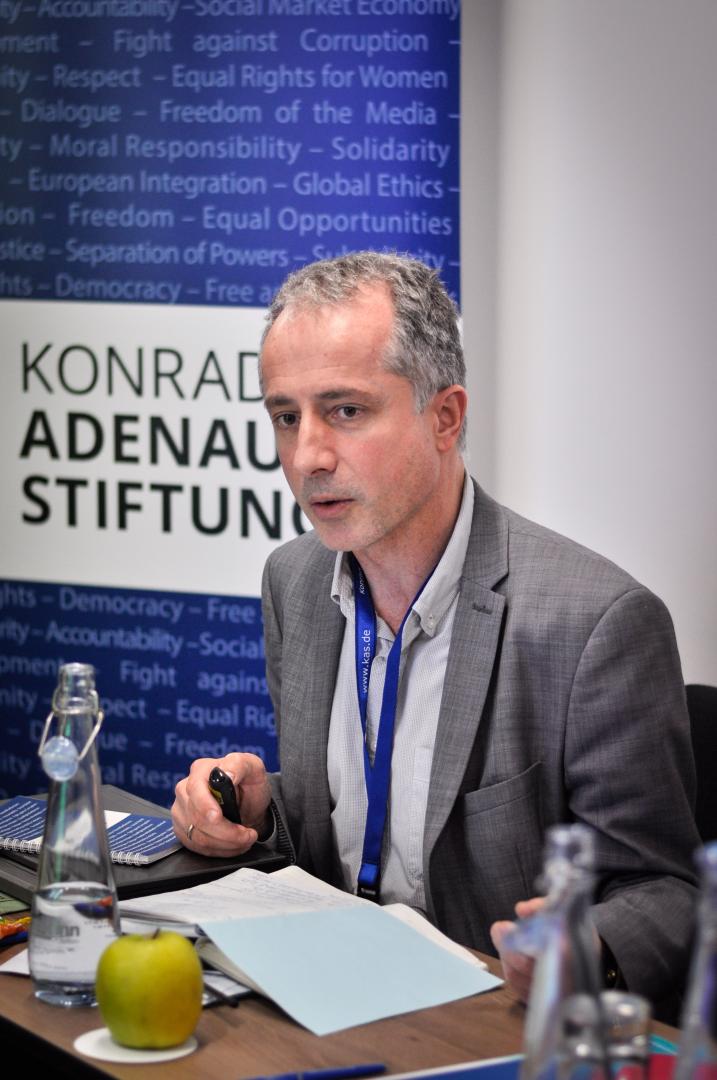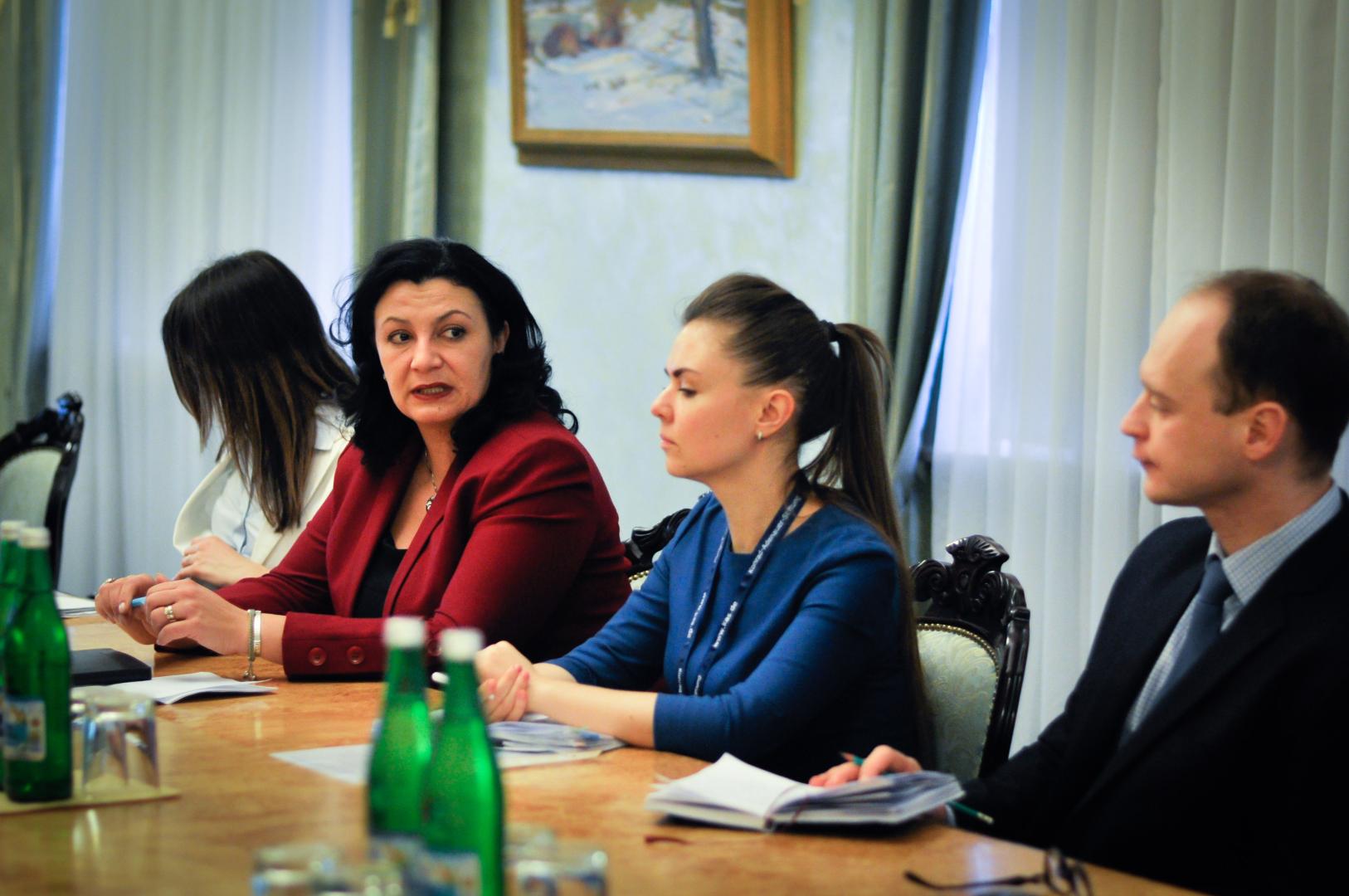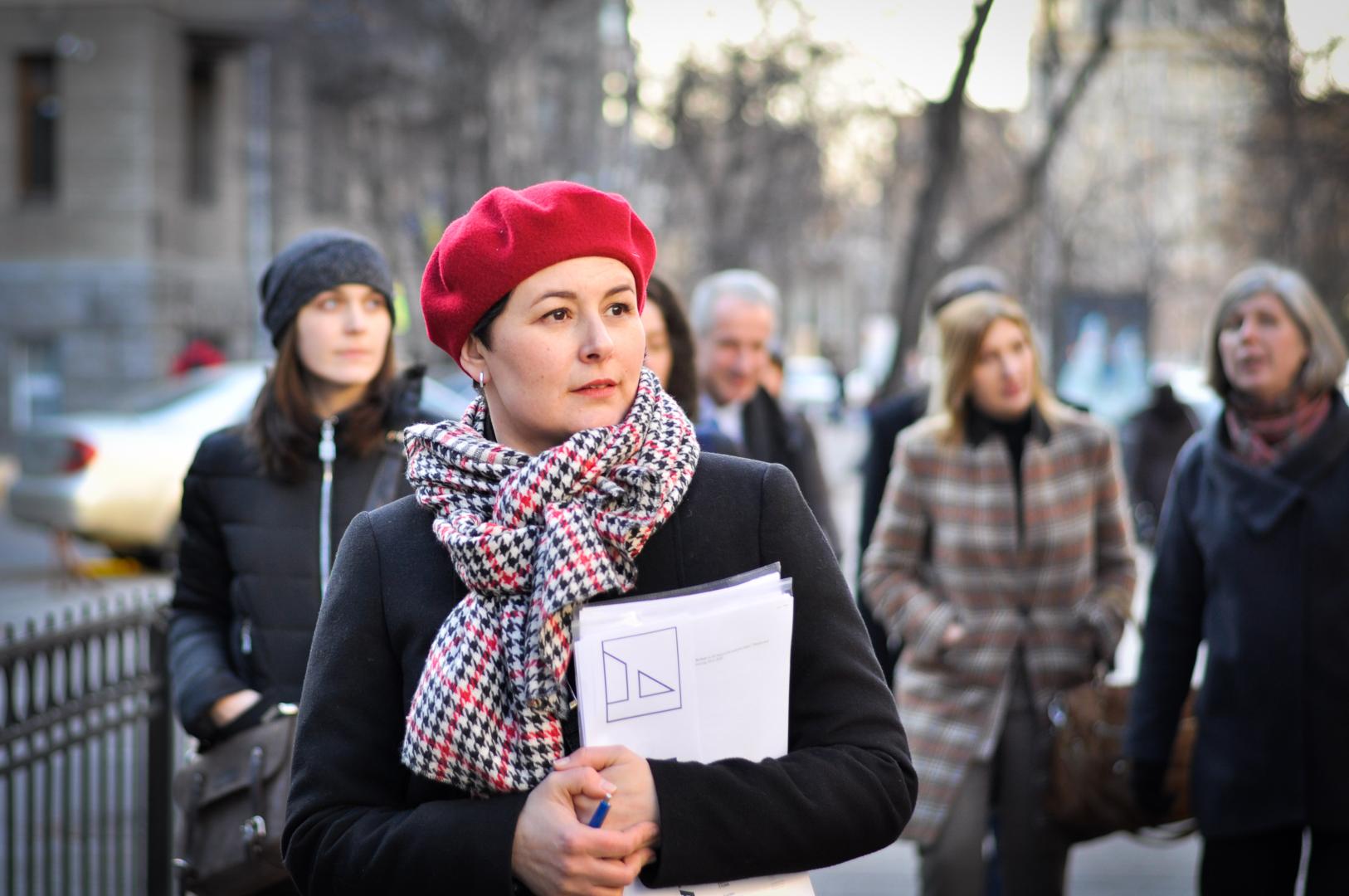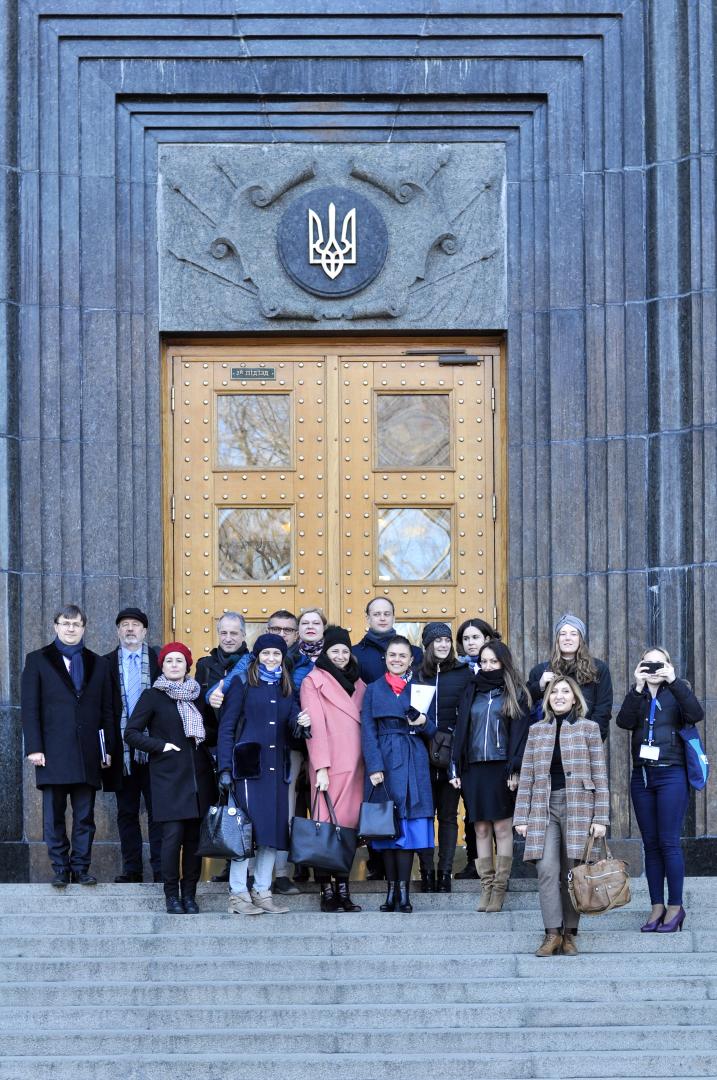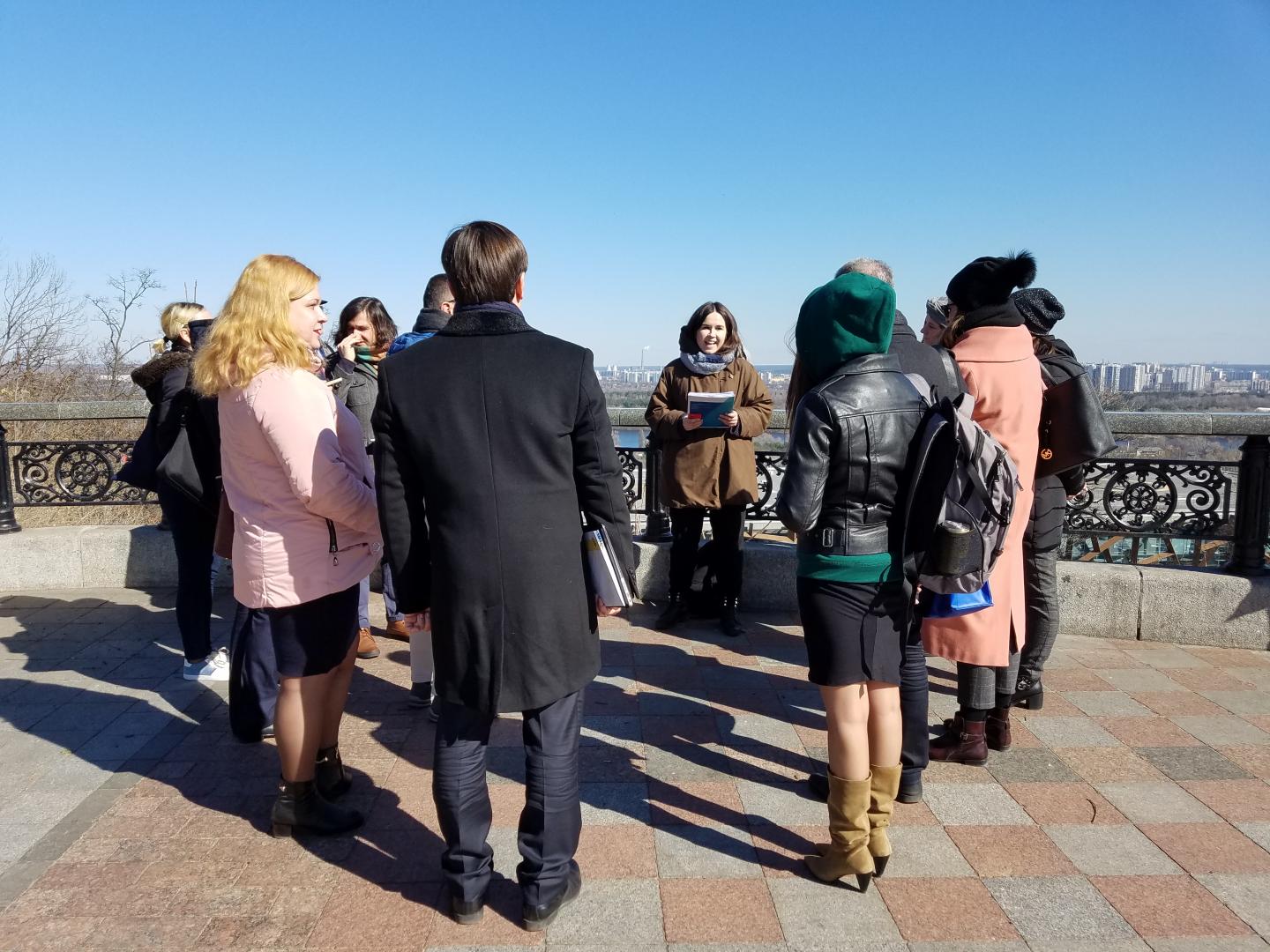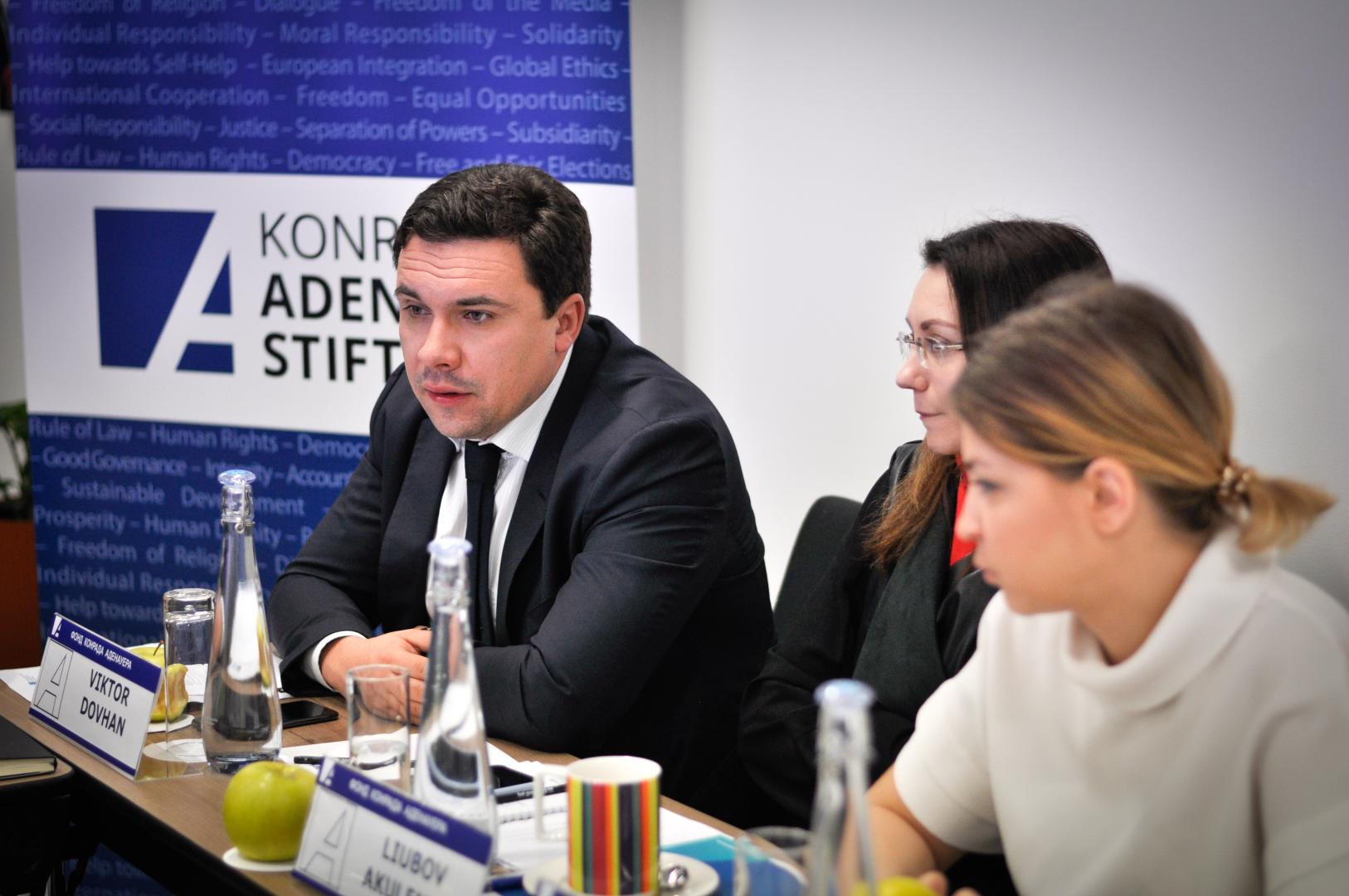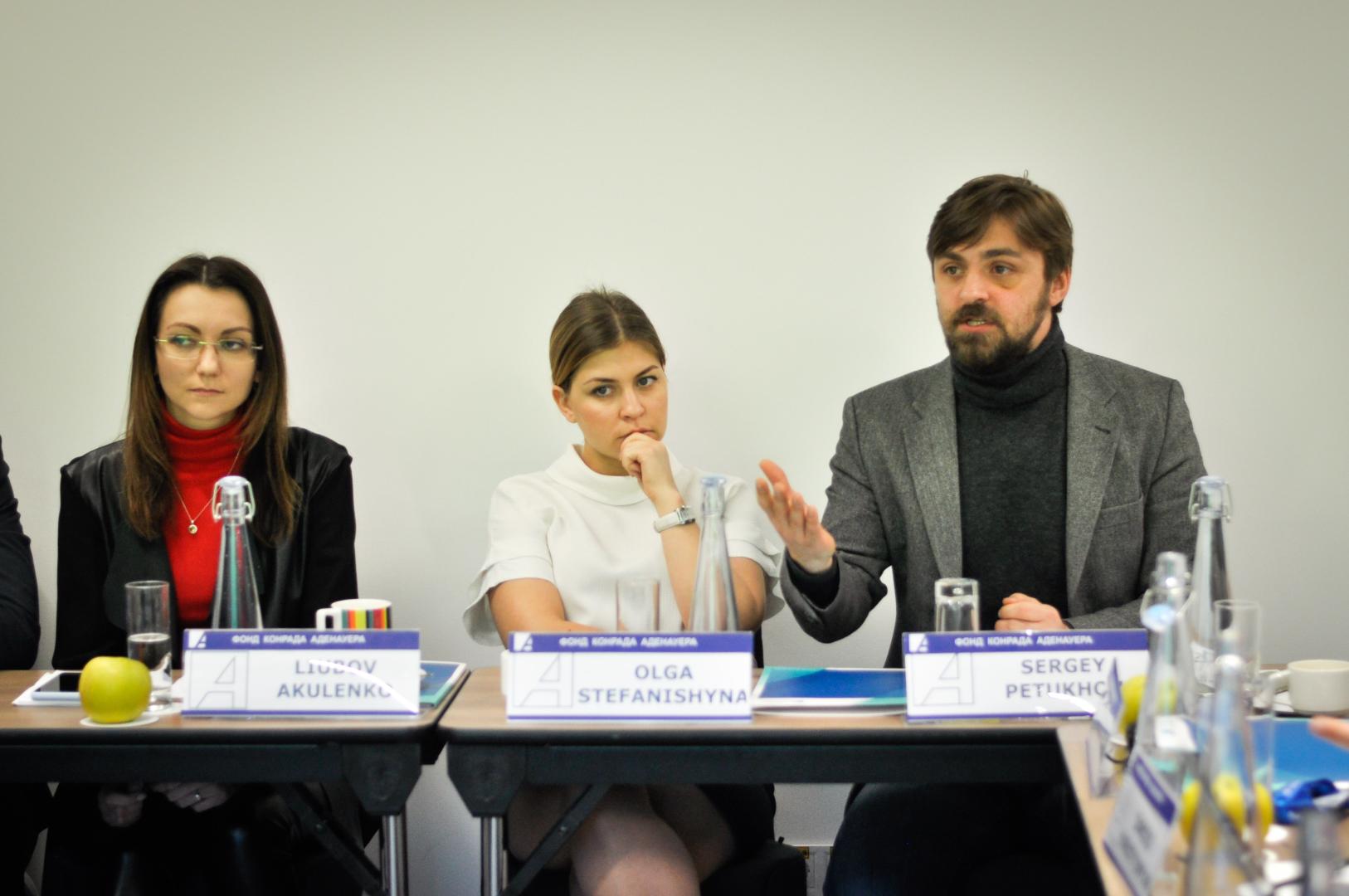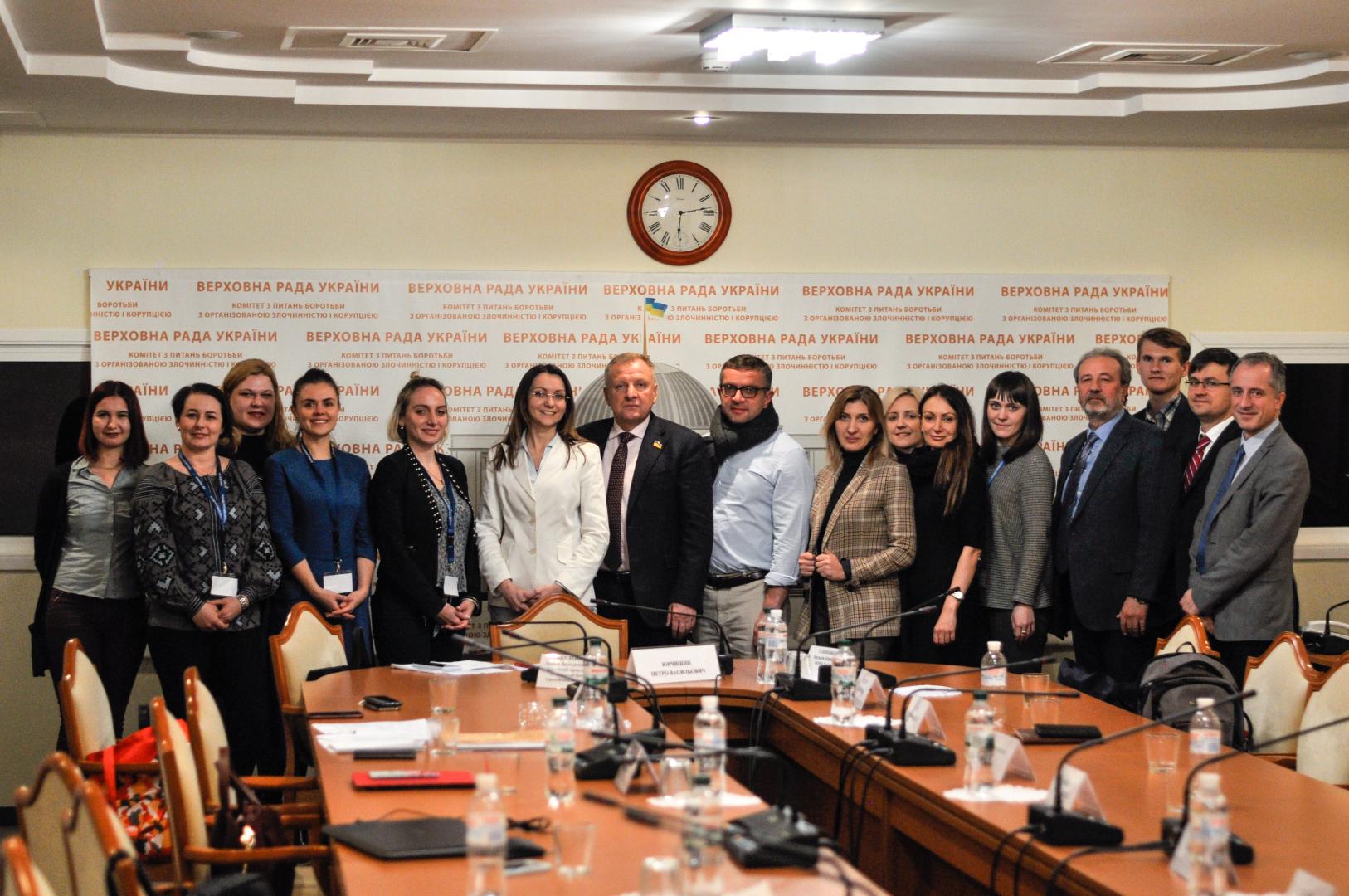The workshop offered selected experts from think tanks, universities and research institutes in Ukraine, Moldova, Georgia, Armenia and Belarus, who are already involved in the preparation of various monitoring reports or statistics, a platform for exchange. During the three day workshop the experts were able to exchange their existing monitoring tools and to discuss the progress in the implementation process.
The first day started with welcoming words by the Head of the KAS Office in Ukraine (Kiev), Gabriele Baumann and Liubov Akulenko from UCEP, who stressed the different approaches in monitoring methodology as well as the urgent need for a future perspective for the countries of the Eastern Partnership.
Three presentations from existing monitoring tools and reporting systems from Moldova, Georgia and Ukraine were followed by an in-depth discussion on strengths and weaknesses of the tools and common challenges and opportunities. Iulian Rusu, analyst at the Institute for European Policies and Reforms (IEPR) Chisinau, presented their 4th shadow report , which is monitoring the implementation of commitments of Moldova’s National Action Plan 2017-2019 (http://ipre.md/2019/03/12/7874/?lang=en). He pointed out that the overall implementation rate for Moldova for the years 2017-2018 was 31,9%, e.g. 953 measures out of 1459 measures were implemented until the end of 2018.
Kakha Gogolashvili, representing the Georgian Foundation for Strategic and International Studies (Rondeli Foundation) then gave an overview of the structure of actors and platforms that are dealing with the monitoring of the implementation process in Georgia. It is noteworthy that the National Action Plans in Georgia are conceptualized on a yearly basis.
Dmytro Naumenko, who is part of the UCEP team, introduced their own EU-Navigator tool and shed light on how it is being updated and used (http://navigator.eurointegration.com.ua/tasks). In 2018, Ukraine had to approximate its legislation to EU legislation in six areas: transport, social policy, technical barriers to trade, establishment and trade in services, environment and company law. The tool covers only parts IV. and V of the Association Agreement and resulted in a report on the legal approximation from 2014 to 2018, which estimated 24% of the commitments to be fulfilled (https://www.kas.de/documents/270026/270075/Report_2014-2018_WEB_FINAL.pdf/43f0a18a-cefa-ae6f-a74b-5b31a2e9a9b7?version=1.0&t=1545056719054 ), while the Ukrainian government sees the implementation progress fulfilled by 52% (http://www.3dcftas.eu/system/tdf/association-agreement-implementation-report-2018-english.pdf?file=1&type=node&id=552 ). According to Naumenko, the sectors public procurement, technical barriers to trade, taxation, company law and consumer protection were the most developed ones, while mixed results were achieved in energy, transport, social policy and the sector of environment. Only little or no progress was traceable in customs, the establishment of business entities, trade in services and electronic commerce and public health.
In the evaluation round Stephan Malerius, EU-project Team leader at KAS Berlin, reflected on common challenges and synchronizing efforts alongside with the expert group. For example the lack of access to verifiable data, the question of threshold – when a prerequisite of the AA is rated as fulfilled, the weak institutional capacity, lack of human and financial resources, and the complexity of communicating the outcome to a non-expert public. There also needs to be ex-post evaluation and regular reporting, as well as more connections between policy planning and budgeting.
With the aim to include the governmental side and EU institutions into the discussion about the implementation process and its weaknesses, the second day of the workshop started with a meeting in the Cabinet of Ministers of Ukraine. The Vice-Prime minister on European Integration, Ivanna Klympush-Tsintsadze, and the Director of Governmental office for European and Euroatlantic Integration, Olga Stefanishyna introduced the Ukrainian governments’ internal monitoring tool and methodology and answered to the questions of the expert group.
Afterwards, the participants had the chance to meet with representatives from the EU-delegation, Maria Golub, Daniel Kramer, Tetiana Roshchina and Eamonn Prendergast, who were explaining about the role of the EU in the implementation process and that the goal should not be to reach 100% in numbers, but to actually approximate the legislation.
In the meeting with the Member of the Committee on Agrarian Policy and Land Relations of the Verkhovna Rada of Ukraine, Petro Jurchyshyn emphasized that implementation processes in this sector are already quite successful and that there are direct benefits connected to entering the EU market.
On the third and last day of the workshop the experts were meeting with Sergiy Petukhov, Deputy Minister of Justice of Ukraine, and Viktor Dovhan, Deputy Minister of Infrastructure of Ukraine. With Mr. Petukhov the group was reflecting on the biggest challenges faced in the context of the implementation of the Association Agreement. The discussion with Viktor Dovhan was on the modernization of airports, roads and connection routes to other countries, but also about the introduction of the new Intercity train that operates within Ukraine and the expansion of the internal flight network.
In the final discussion all participants agreed on the necessity of developing comparable monitoring tools. Ukraine, which seems to have the most developed monitoring tool so far, is still not covering all areas of the agreement. Thus, the synchronizing of the existing monitoring systems of the countries of the Eastern partnership seems crucial for the implementation progress. The participants also underlined the important role of civil society for a more successful implementation of the EU Association Agreement. By functioning like a watch dog, but also partner and expert for state institutions, civil society contributes to the implementation process with their different angle of perspective, new ideas and their expertise. The participants from Armenia pointed out how important it was to include their country in such exchange networks, since they would like to have similar tools and approximation policies in the future. Furthermore this format has brought insights to all participants and they were able to learn from each other, for example that the three countries with EU-AAs face very similar challenges when monitoring the implementation process. Besides it could lead to healthy competition setting to look at the three countries through comparable monitoring tools. And last but not least, together these three could commonly address challenges vis-a-vis the EU together with a stronger voice.
The participants and organizers have agreed to continue this format with a second workshop.
Authors: Isabel Weininger and Leonie Greta Scheid



